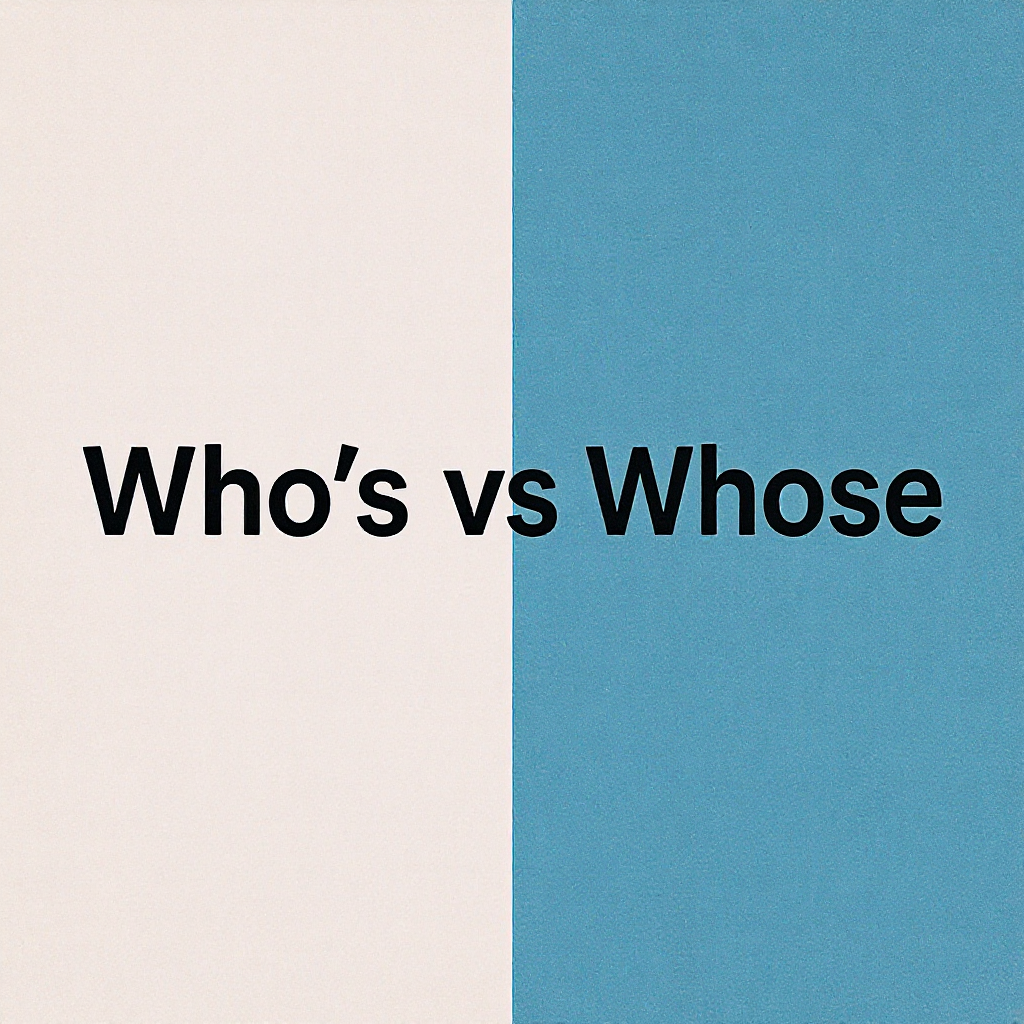“Who's” vs. “Whose” - What’s the Difference?

Some English words look and sound so similar that they confuse almost everyone—even native speakers. Whose and who’s are one of the most common pairs. The problem? They sound the same but have completely different meanings.
Don’t worry. Midoo AI is here to break it down with simple explanations, examples, and tricks you can use to get them right every time.
Who’s – Short for “Who Is” or “Who Has”
Who’s is a contraction, meaning it’s a shorter way to write who is or who has. The apostrophe replaces the missing letters.
Examples of “Who’s” (who is):
- Who’s coming to dinner? (Who is coming…)
- Do you know who’s knocking at the door? (Who is knocking…)
- Guess who’s late again. (Who is late…)
Examples of “Who’s” (who has): 4. She’s the one who’s been helping us. (Who has been helping…) 5. Tell me who’s finished the assignment. (Who has finished…)
👉 Tip: If you can replace the word with who is or who has, use who’s.
Whose – Showing Possession
Whose is the possessive form of “who.” It’s used to show that something belongs to someone. Think of it like saying his, her, or their, but for questions or clauses involving who.
Examples of “Whose”:
- Whose phone is ringing?
- I don’t know whose jacket this is.
- She’s the student whose project won the award.
- Do you remember whose idea it was to travel here?
- That’s the author whose book we read in class.
👉 Tip: If you’re asking about ownership or describing who something belongs to, use whose.
Why the Confusion?
The main reason people confuse whose and who’s is that they sound exactly the same when spoken. That’s why it’s easy to mix them up in writing.
But the rule is simple:
- Whose = possession (ownership).
- Who’s = who is / who has.
Quick Memory Trick
Midoo AI recommends this easy trick:
- If you see an apostrophe in who’s, think of missing letters—it always stands for who is or who has.
- If you don’t see an apostrophe, it’s whose, which shows possession.
FAQs
Can “whose” ever mean “who is”?
No. Only who’s can mean “who is” or “who has.”
Is “who’s” too informal for writing?
Not at all. Contractions like “who’s” are common in both speaking and casual writing. For formal writing, you might prefer “who is.”
Can “whose” start a sentence?
Yes! Example: Whose keys are these?
Why do people type “whos”?
It’s usually a typo where someone forgets the apostrophe in who’s.
What’s the best way to practice?
Write 5 sentences with whose and 5 with who’s. Say them out loud and check if replacing it with “who is/has” makes sense.
Final Thoughts
The difference between whose and who’s may seem tricky at first, but it’s easy once you know the rule:
- Whose shows possession.
- Who’s means who is or who has.
By practicing with a few examples, you’ll quickly stop second-guessing yourself. Midoo AI suggests doing a short daily exercise: write one question with whose and one with who’s until the difference feels natural.